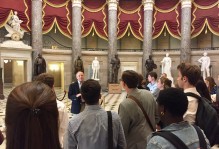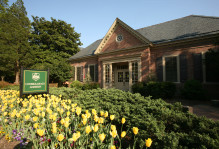Changing the World
Do you want to change the world? Do you believe in the power of knowledge? Are you interested in tackling persistent social problems with the best tools of science? Do you want to make a difference, beyond just being “nice” and acting with good intentions? All good, but how do you do that? What follows is a brief account of my own stumbling and bumbling to find ways to do those things – and still have a life.
At the dawn of time — or so it may seem to some readers — I discovered a college major that seemed to me to offer a great hope for the future. I would study sociology (regarded by one of its founders as the “Queen of the Sciences”), learn what is known about the important stuff of groups, organizations, social structure and culture, communities, and societies, learn the professional and scientific skills of the discipline, and then embark on a career to use my expertise to help solve the problems that concerned me most: crime, poverty, racism, inadequate health care.
For some time, I expected that I would specialize, earn my Ph.D., and then work within the criminal justice system, working inside the system to correct what seemed to me disastrous injustices and just plan wrong-headedness. I did work in the system for some time, but I soon began to worry that I would not be able to advance to the important decision making levels without being co-opted by the assumptions and presumptions of the very system I wanted to change. I decided that basic research would serve my goals. I would take a position within a university, teach about my field and my research, do research that would shed unyielding light on the workings of our system. More, I would hire out as a consultant to agencies within the system who would pay me for my expertise, and then, surely, would follow the advice I have to offer. In fact, the teaching and the research were and are enormously rewarding. And the consulting is rewarding both intellectually and financially! But in time I came to worry that I was invited to consult only on those matters that are at the margins — those that do not question the core assumptions or design of the system and its plans.
From the beginning, I heard occasional rumblings about an approach that seemed enormously inviting and promising: social action research; or, sometimes, action research; and now, community action research and applied and clinical sociology. As I envisioned it, this approach would draw upon the conceptual and methodological tools of social science to engage questions about the causes of persisting social problems and, with that knowledge, its practitioners would collaborate with local, state, and national leaders to enact knowledge-based strategies to solve the problems.
There are some practitioners of the approach. They work in government and not-for-profit agencies doing research and administrative activities. Or, they head up or support change-oriented volunteer organizations and projects. Professional associations of action researchers emerge from time to time, but they are not easily identifiable – even with good Google searches. Not so long ago, the DC Sociological Society specialized in action research and provided some excellent networking resources. More recently, the Association for Applied and Clinical Sociology has provided leadership and direction: http://www.aacsnet.org/wp/?page_id=59
I believe in the approach and its potential. I am convinced that we can at least supplement political decision making with knowledge- and evidence-based strategies for change. I am particularly persuaded by the idea that we should proceed experimentally whenever possible: begin with the very best knowledge about causes and effects, proceed to design strategies of change based on knowledge – building in the capability of empirically testing the results, and continue, change, or discontinue based on carefully collected empirical evidence.
The bad news is that this isn’t an easily identifiable or accessible career field. I talk to many students every year who want to do this kind of work. They have a hard time finding a way to think about the proper preparation and developing strategies that will get them a first experience doing “action research.” My advice is to check out the website mentioned above, and if you want, come talk with me. I don’t have lots of answers, but I do have a passion for the questions.




No comments.
Comments are currently closed. Comments are closed on all posts older than one year, and for those in our archive.